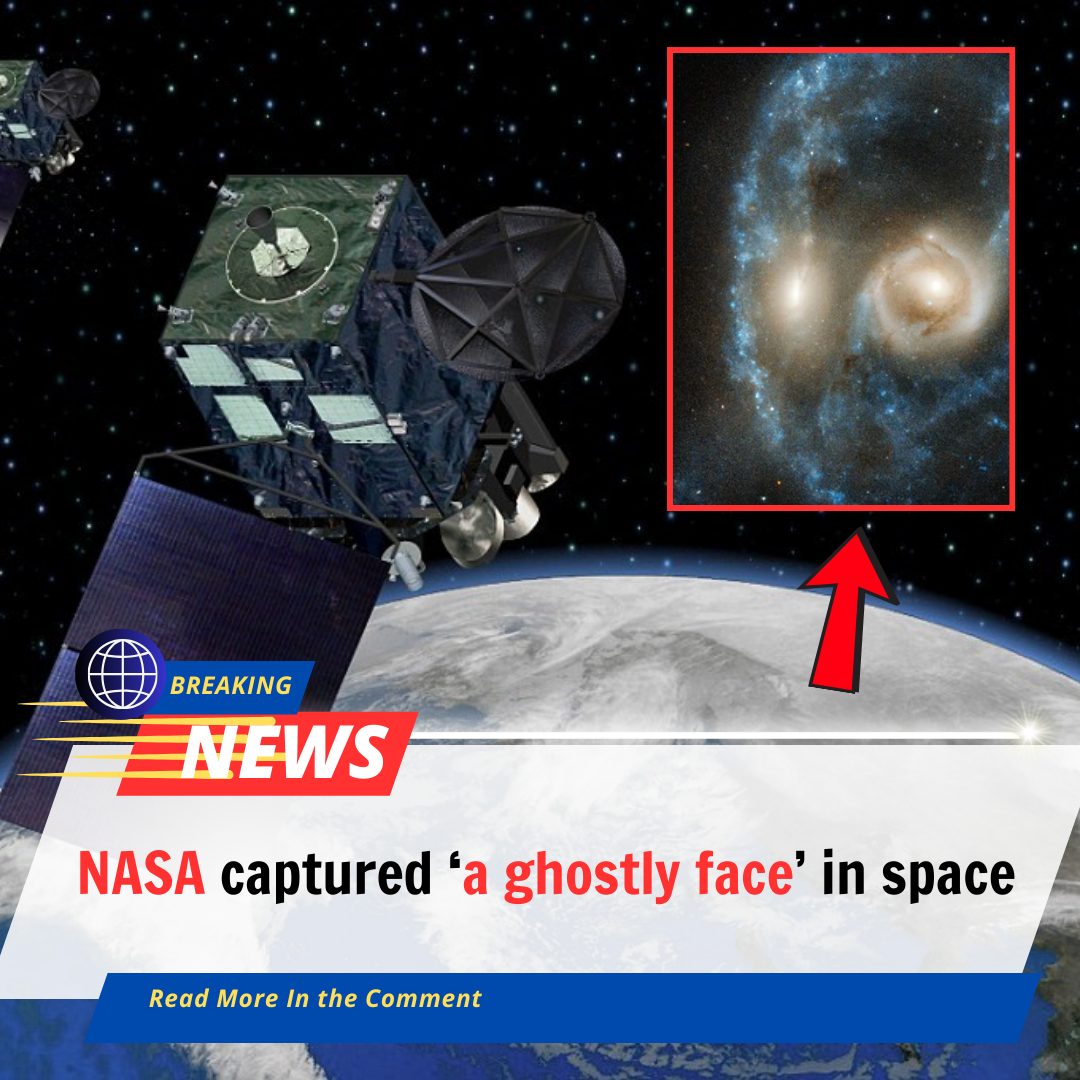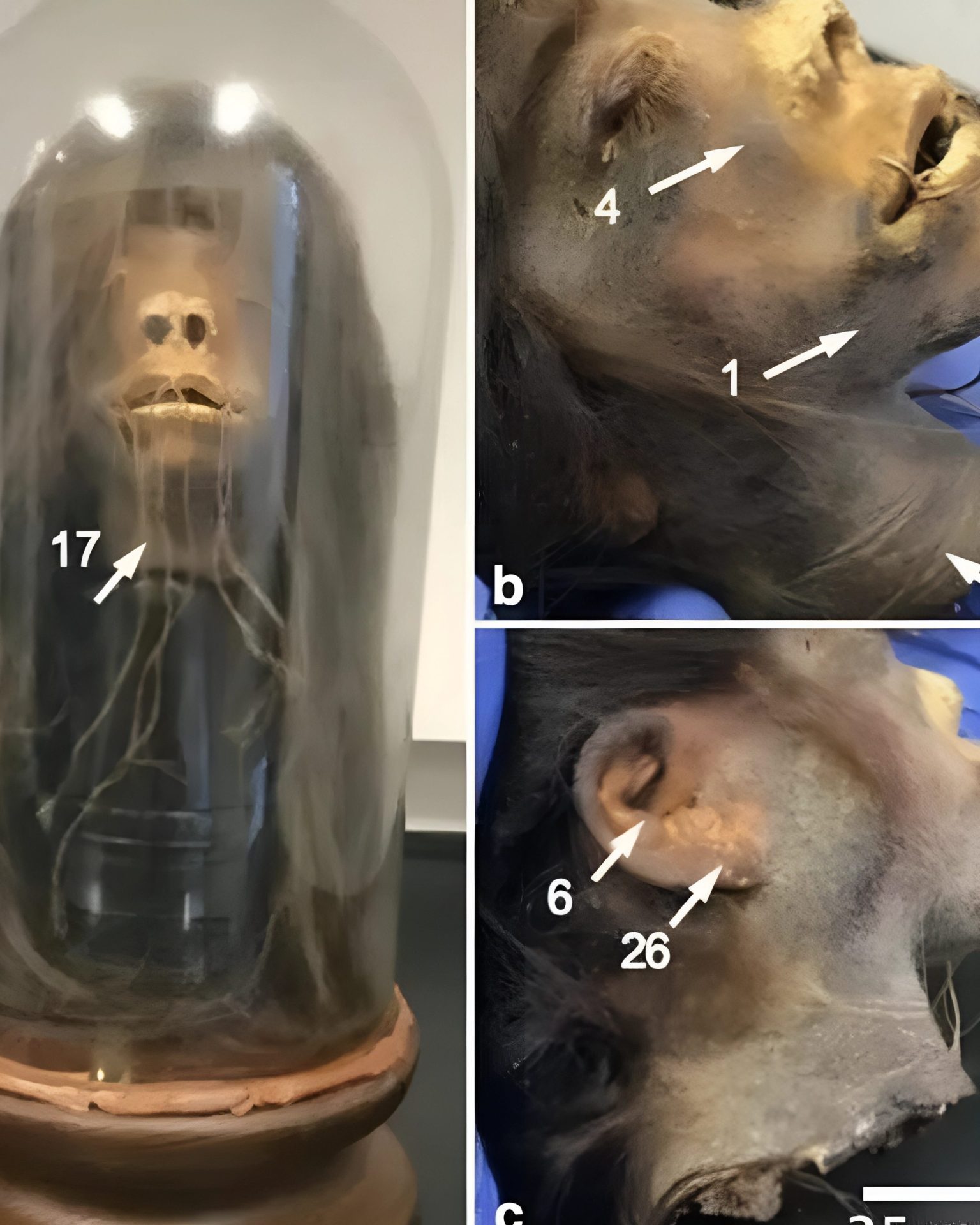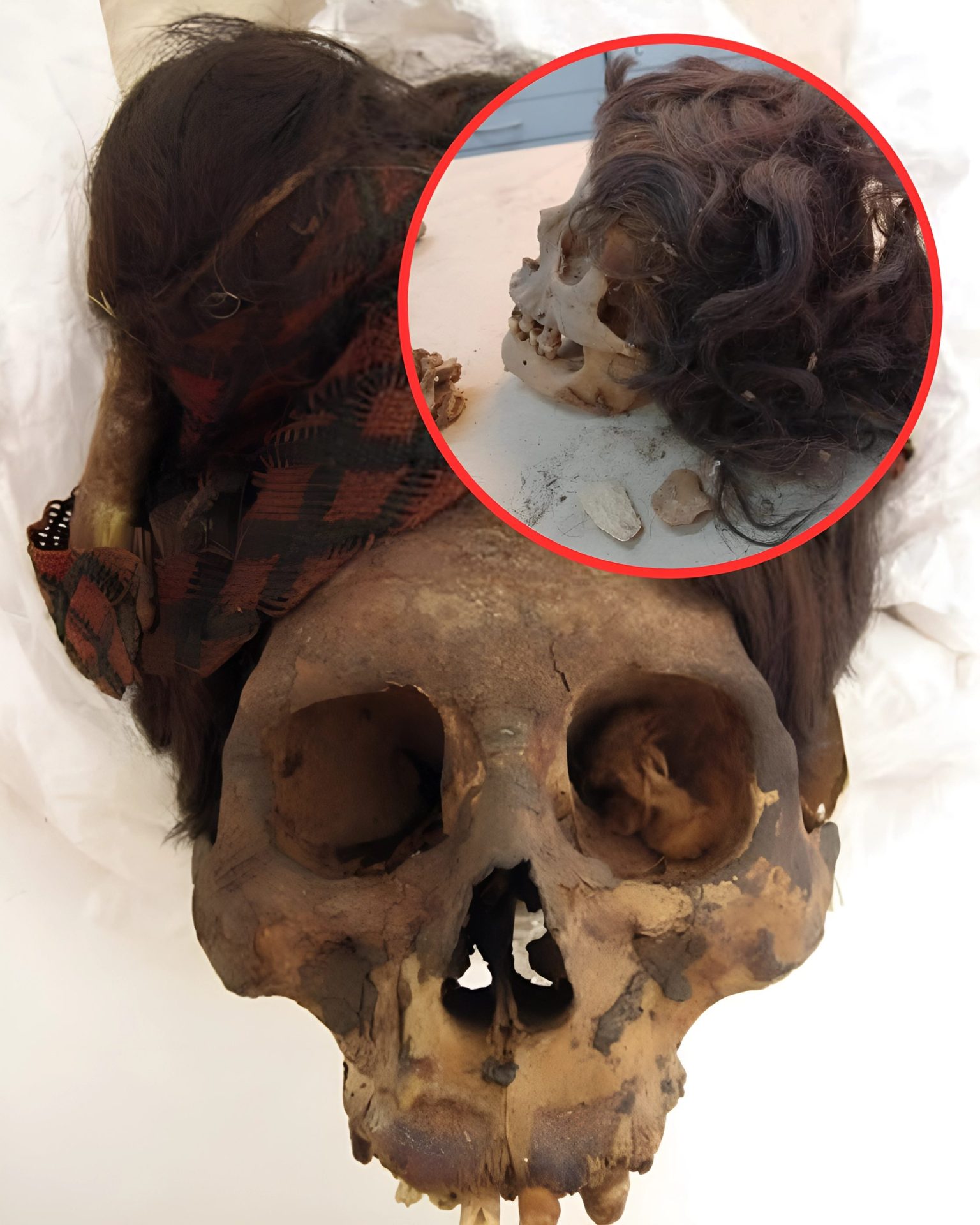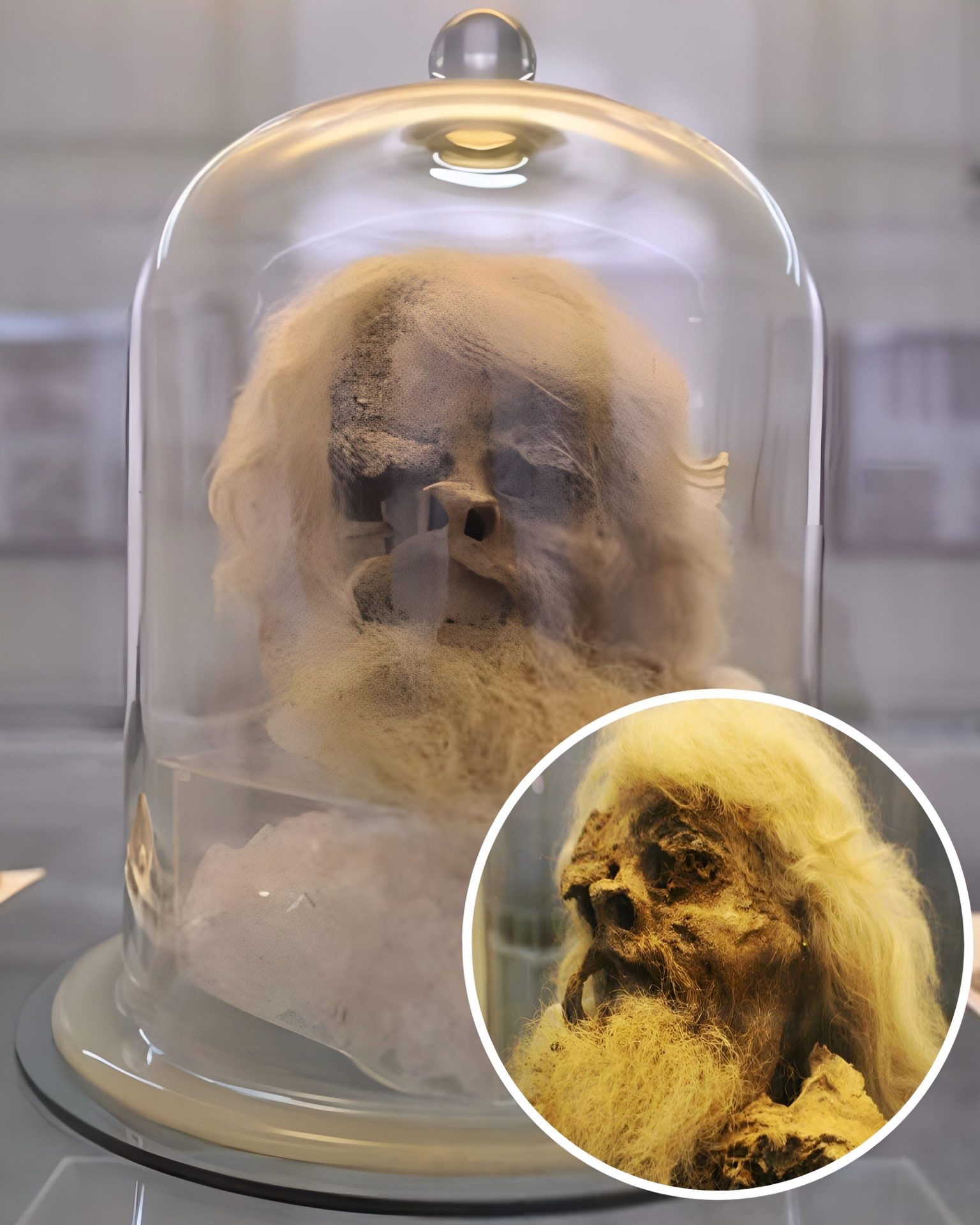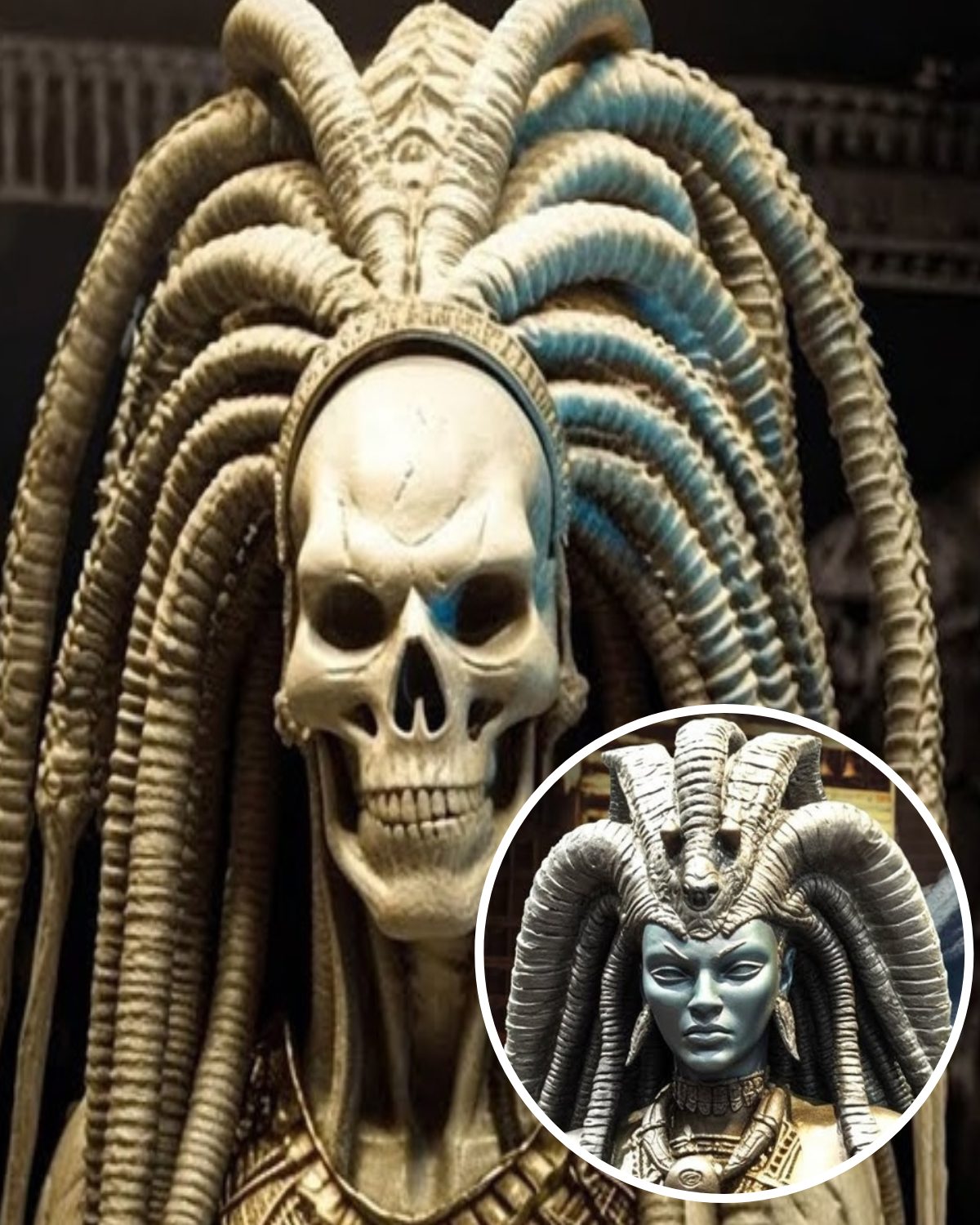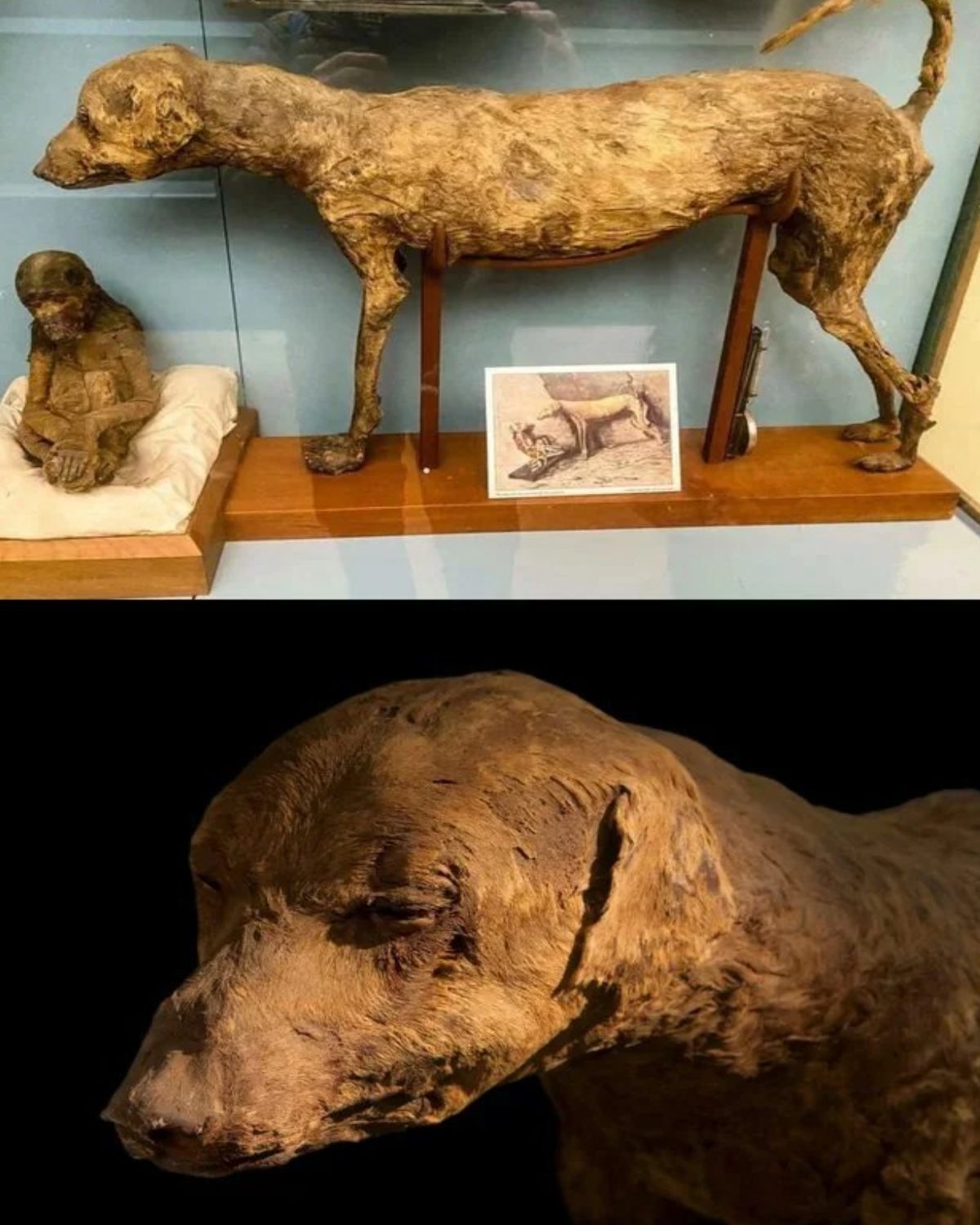
Nestled within the mystical expanse of the Bourtanger Moor in the Netherlands lie the chilling remnants of a bygone era—the Weerdinge Couple. Discovered in 1904, these mummified remains of two adult men, dated to a staggering timeline spanning 160 BC to 220 AD, cast an ethereal spotlight on the enigmatic stories concealed within the ancient bogs of Europe. The striking preservation of their flattened bodies, bereft of bones yet cloaked in eerily intact skin, unravels a tale steeped in violence, sacrifice, and the poignant echoes of untold tragedies.

The peculiarity of the Weerdinge Couple lies not only in their preservation but also in the haunting manner in which they met their respective fates. One figure, nestled upon the outstretched arm of the other, shrouds the secrets of an unknown demise. However, the second man’s body bears harrowing evidence of a tragic end—his chest, pierced by a fatal stabbing, exposes his intestines in a gruesome display. These wounds, reminiscent of violence and terror, stand as a testament to the sinister narratives that pervaded ancient cultures, whether through acts of murder or the ritualistic sacrifice of lives.

Venturing beyond the singular tragedy of the Weerdinge Couple, these macabre discoveries become intertwined with a broader phenomenon recognized as “bog bodies.” Strewn across the landscape of northwest Europe, these astonishing finds illuminate a shared narrative—a mosaic of lives tragically cut short, their remains conserved by the unique conditions of the bogs. Yet, beneath the layers of preservation lies a cryptic tapestry, revealing glimpses of an ancient world teeming with mysteries, where death often arrived amid violence or as part of religious offerings to deities shrouded in antiquity.
The mysteries of the bog bodies extend beyond their deaths, hinting at the societal complexities of the past. Among these discoveries lay hints of the marginalized, as some theories suggest that homo𝑠e𝑥uals met a grim fate of being drowned in these very bogs. The high tannin content, low temperatures, and lack of oxygen within these marshy landscapes coalesced to form the perfect milieu for mummification—a natural process that immortalized these tragic figures and the stories etched into their preserved flesh.

While the Weerdinge Couple represents a poignant microcosm of ancient tragedies, they beckon us to delve deeper into the annals of history, encouraging a quest to unravel the enigmas that remain shrouded in the mists of time. These bog bodies serve as poignant reminders of humanity’s complex past, urging us to contemplate the untold stories of lives lost, fates sealed, and civilizations obscured by the passage of millennia. As the echoes of their tragedies reverberate through the ages, the Weerdinge Couple and their counterparts in the bogs remain as testament to the relentless pursuit of understanding our intricate and often haunting past.
